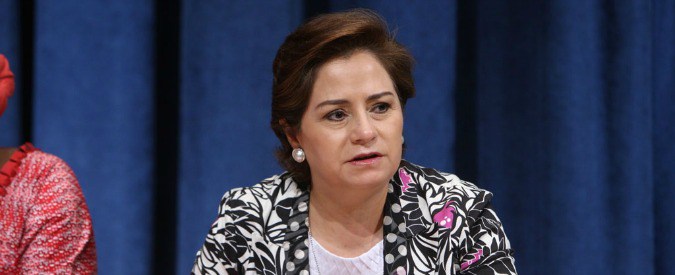
Climate Amazons: Patricia Espinosa, good news for Climate Justice
Women should be one of the first points of reference in every discussion concerning matters relating to climate change on account of their central role in society and their greater vulnerability. However, in the international debate women are not represented in a manner proportionate to the risks they would be exposed to in the event of an environmental disaster. In the run-up to the 22nd session of the Conference of the Parties (COP22) to the United Nations Framework Convention on Climate Change (UNFCCC) it is therefore important to present the work of female diplomatic representatives or local activists who are achieving outstanding results in the field of climate justice.
Patricia Espinosa (58), a Mexican diplomat, is the new Executive Secretary of the UNFCCC, the treaty which every year constitutes a fundamental area of work carried out by the COP, which was held in Paris in 2015 (COP21) and will be held at Marrakesh in Morocco in 2016 (COP22)
On 18 May 2016, UN Secretary General Ban Ki-Moon appointed Patricia Espinosa to replace the Costa Rican Christiana Figueres, who resigned after two mandates that were crowned by the achievement of the Paris agreement: the first to occur with a truly global level of participation.
It is significant that this office was once again assigned to a woman and in particular to a diplomat from Central America, bearing witness to the pioneering role of Latin America with respect to environmental issues and, in particular, considering the proposal made by the Bolivian President Morales in 2009 for the establishment of a climate-justice tribunal within the UN system.
In 1996 Espinosa gained worldwide acclaim on account of the decisive role that she played in the development of the so-called Beijing Platform for Action, the final act of the Fourth World Conference on Women organized by the United Nations. Another crucial moment in her diplomatic career was her appointment as President of COP16, held in Cancun in Mexico in 2010, a role conventionally assigned to a representative of the host country. In this case, the decision was certainly justified by her previous experience with environmental issues and human rights issues.
The appointment of Espinosa to the Secretariat General of the COP22 is definitely good news for the supporters of climate justice. A tireless promoter of multilateralism as a means for development, she is one of the most influential figures in the international debate on climate change.
Espinosa’s position is based on the principle of sharing climate responsibility.
This requires cooperation between developing and industrialized countries, with each nation intervening in a manner commensurate with its role, and supporting the actions required to surmount the problem of climate change. The process moreover stems from the principle of free access to financial and technological resources necessary to achieve such a result.
In other words, climate justice must be seen as an integral part of each model of sustainable development because of its fundamental implications in terms of human rights.
More specifically, since 2013 Espinosa has covered an advisory role within the sphere of Climate Justice Dialogue, an initiative of the World Resources Institute – one of the most important non-governmental institutions in the field of research regarding the environment and development – and of the Mary Robinson Foundation-Climate Justice, more specifically dedicated to humanitarian and environmental advocacy. The Advisory Committee of the project is formed by 23 international leaders involved in the fight against climate change (occurring on several fronts, from science to policy), including academics, businessmen and public figures.
Their experience and influence constitute great advantages for the project to promote at all levels principles relating to climate justice. Espinosa is one of the most prominent names on the Committee and has been instrumental in the drafting of the Declaration on Climate Justice, the document that calls world leaders to take action and lay the foundations for a more equitable future.
With regard to the upcoming COP22 at Marrakesh, many expectations are nurtured by society, which trusts that substantial steps forward will be made with respect to the significant results obtained in Paris.
These hopes are also fuelled by the fact that the new Secretary General of the UNFCCC – the person standing as a guarantor for long-term climate diplomacy – is Patricia Espinosa, a woman of unquestionable integrity and humanity entirely dedicated to the cause of climate justice.
Chiara Soletti
Published for Italian Climate Network on Il Fatto Quotidiano
